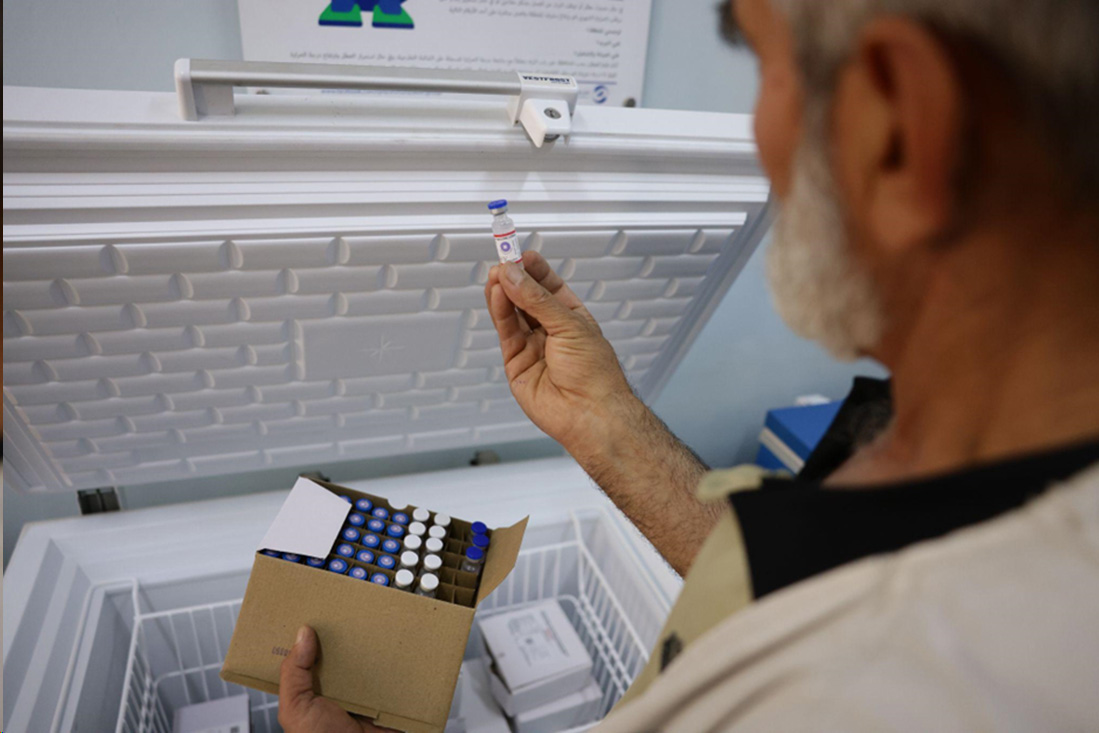 Jamal, a vaccination supervisor in Khan Shaykhun, prepares a vaccine dose during an outreach campaign. Photo: WHO21 July 2025, Syrian Arab Republic – When Hassan and his family returned to Khan Shaykhun after years of displacement, one of his first concerns was his children’s health.
Jamal, a vaccination supervisor in Khan Shaykhun, prepares a vaccine dose during an outreach campaign. Photo: WHO21 July 2025, Syrian Arab Republic – When Hassan and his family returned to Khan Shaykhun after years of displacement, one of his first concerns was his children’s health.
“All my children have been vaccinated on time,” says the father of seven. “It wasn’t always like this. During our displacement, we had to walk for hours to find a health centre. But now, services are closer. They even announce vaccination campaigns in community centres and schools.”
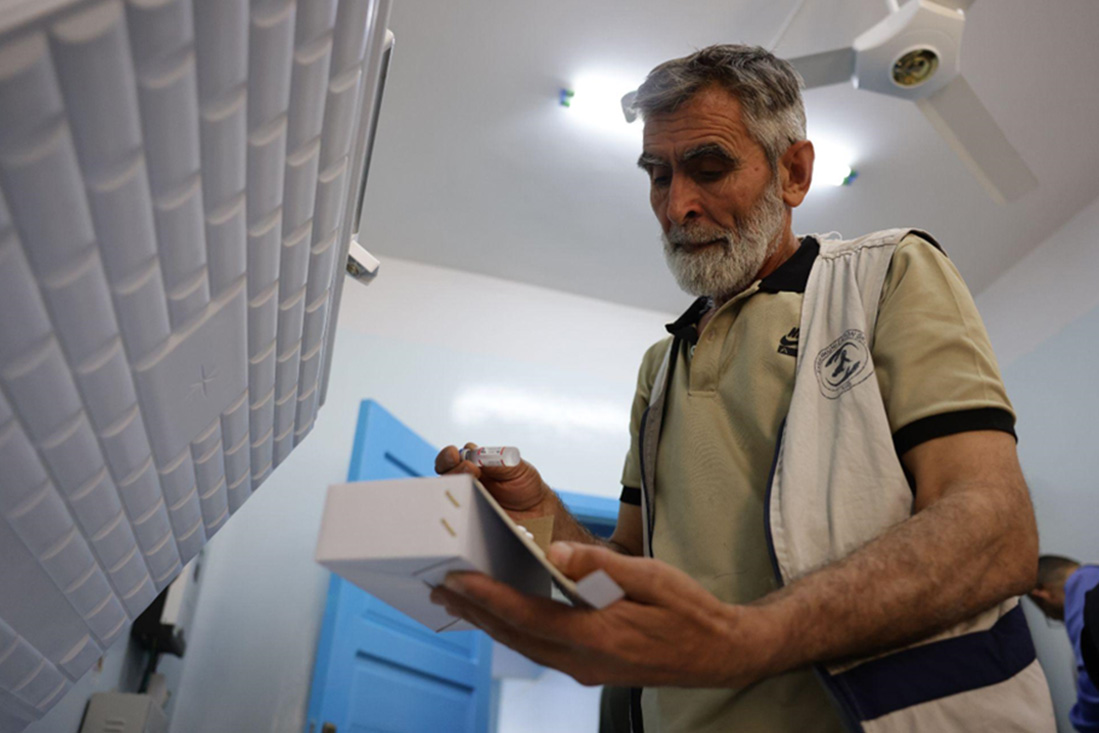 Jamal checks a vaccine dose before administering it to children during outreach in Khan Shaykhun. Photo: WHOIn this quiet but determined recovery, access to immunization has become a symbol of stability and protection. As families like Hassan’s resettle in Khan Shaykhun, the need to catch up on missed childhood vaccines is urgent. For children under five, especially those who missed early doses or were born during displacement, vaccines offer life-saving protection against preventable diseases.
Jamal checks a vaccine dose before administering it to children during outreach in Khan Shaykhun. Photo: WHOIn this quiet but determined recovery, access to immunization has become a symbol of stability and protection. As families like Hassan’s resettle in Khan Shaykhun, the need to catch up on missed childhood vaccines is urgent. For children under five, especially those who missed early doses or were born during displacement, vaccines offer life-saving protection against preventable diseases.
Leading these efforts is Jamal, a vaccination team supervisor. “We provide vaccines to children from the first day of life up to five years old,” he explains. “We also vaccinate pregnant women against tetanus. During recent outreach, we even set up temporary vaccination points in remote areas.”
Areas in southern Idlib Governorate near northern Hama, including Al-Tamanah, Al-Habit, Kafr Sajnah, Abdin, Al-Muqayir, and Sheikh Mustafa, have long been hard to reach, especially as many of them were located along former front lines. But with strong community commitment and dedicated field teams, no child is left behind.
“The electronic tracking system helped us identify children who had missed vaccines. It allowed us to plan follow-up visits and make sure every child was protected,” Jamal adds. “And the community’s support made everything smoother.”
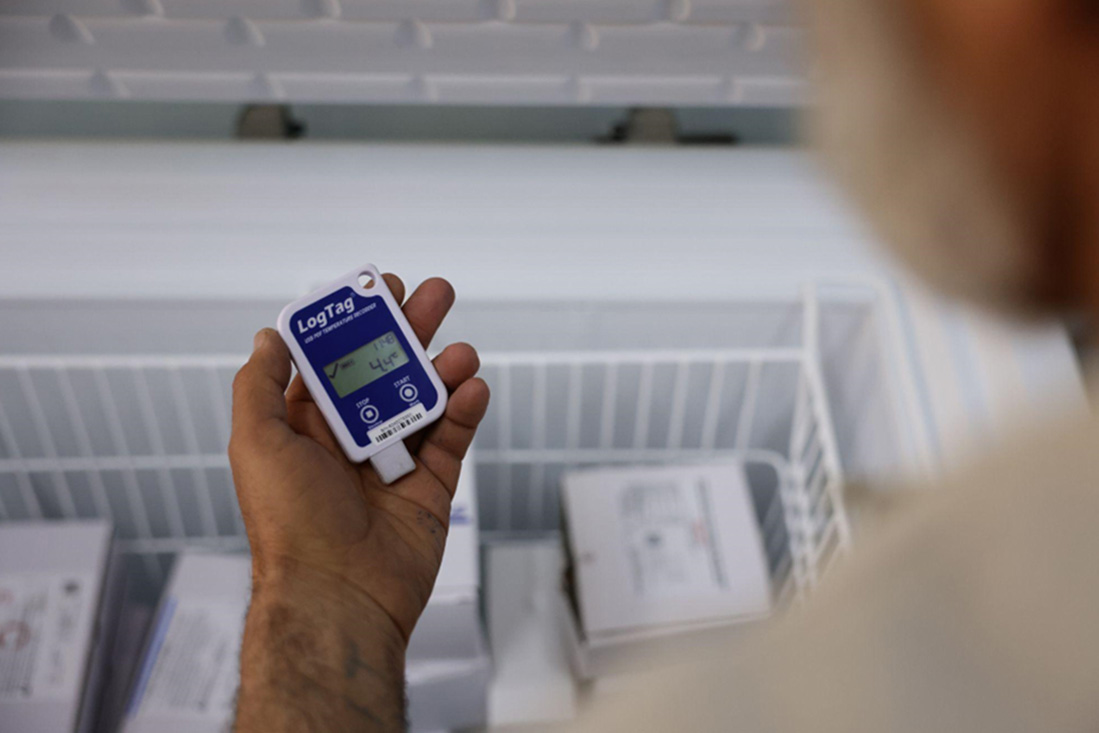 Jamal monitors the temperature of a vaccine to ensure it is safe for use during a vaccination session. Photo: WHOThat support didn’t come overnight. Outreach teams held awareness sessions, handed out printed materials, and partnered with community centres and schools to address misinformation. Religious leaders and teachers helped build trust – one conversation at a time.
Jamal monitors the temperature of a vaccine to ensure it is safe for use during a vaccination session. Photo: WHOThat support didn’t come overnight. Outreach teams held awareness sessions, handed out printed materials, and partnered with community centres and schools to address misinformation. Religious leaders and teachers helped build trust – one conversation at a time.
“People used to hesitate,” says Jamal. “But now they understand. They know how important vaccines are, especially in an environment where health risks are still high.”
These services are part of a joint effort involving the Ministry of Health, UNICEF, WHO and health partners, with support from Gavi, the Vaccine Alliance. In Idlib and Aleppo, more than 80 immunization centres and outreach teams are operating with collective support. As Syria enters a new phase of recovery, these locally led efforts mark an important step towards a more integrated and nationally supported health system.
The teams also monitor child growth during visits by measuring height, weight, and signs of malnutrition to ensure children not only receive vaccines but are also supported with broader primary health services. “There are fewer obstacles now,” says Hassan. “The care we receive is respectful and timely. And thanks to this effort, our children are safer, and our future feels a little more secure.”
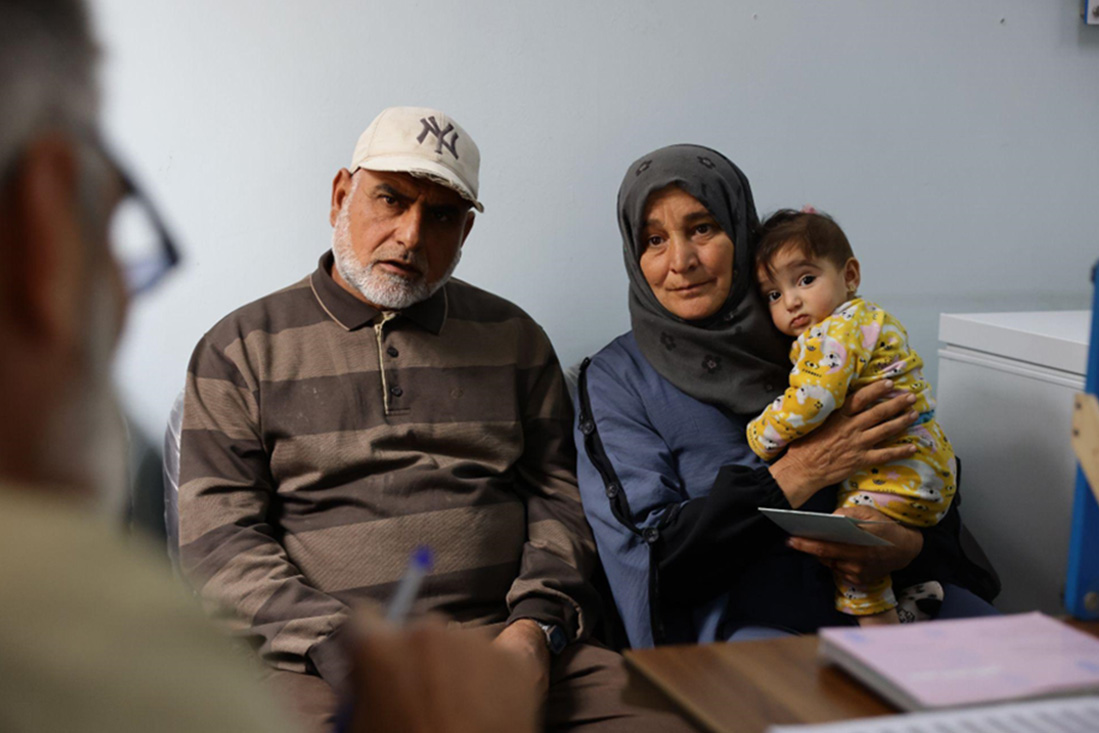 Hasan, a father of seven, speaks with Jamal before his children receive routine vaccines. Photo: WHO
Hasan, a father of seven, speaks with Jamal before his children receive routine vaccines. Photo: WHO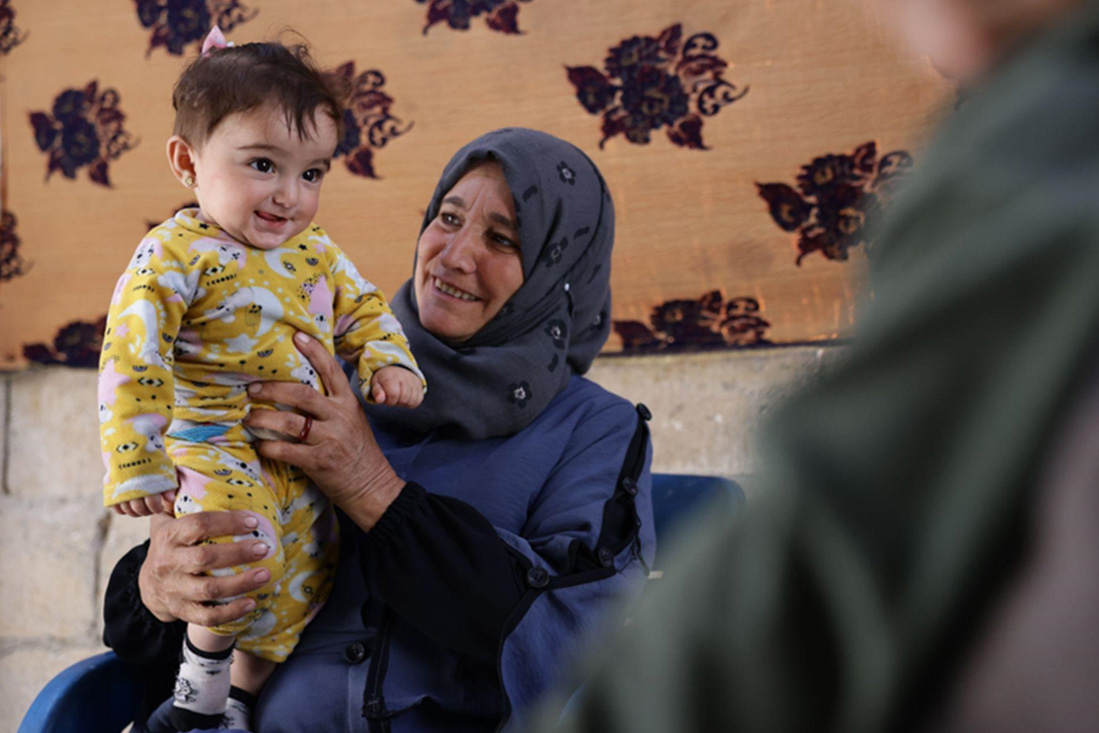 A mother holds her youngest child while waiting for routine vaccination in Khan Shaykhun. Photo: WHO
A mother holds her youngest child while waiting for routine vaccination in Khan Shaykhun. Photo: WHO



